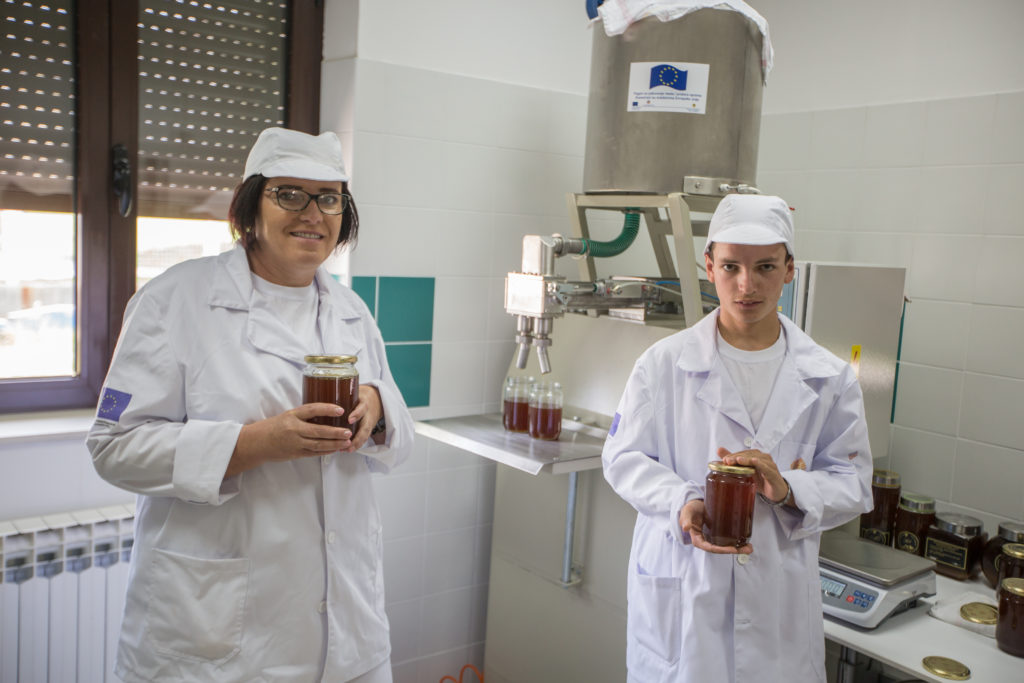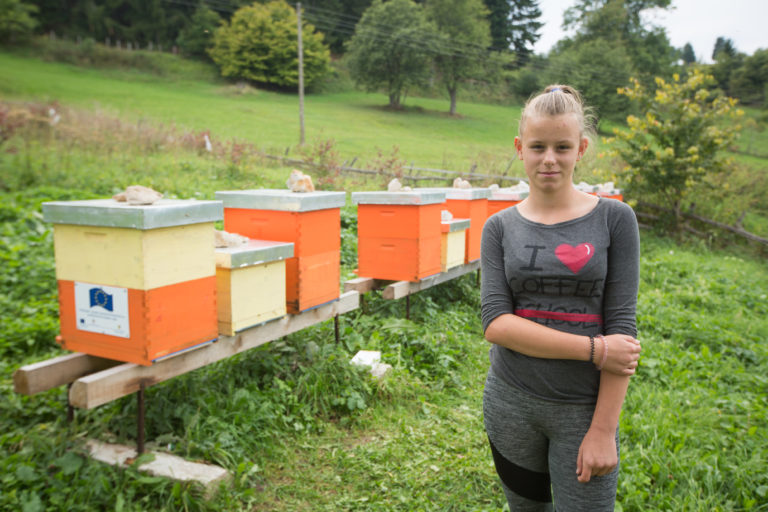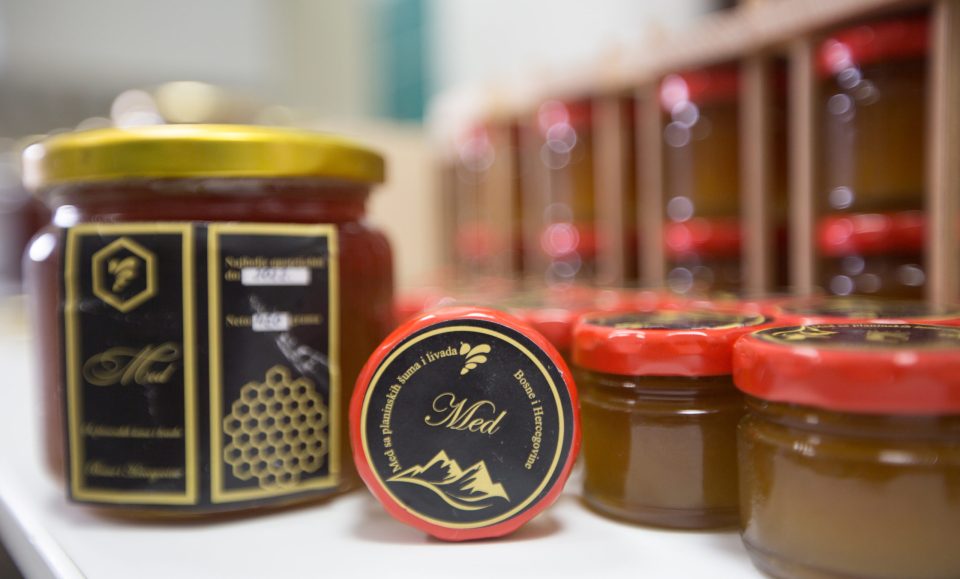Beekeeping is a profitable enterprise, as it helps self-employment and poverty reduction, while not having a negative impact on the environment. This project was aimed at developing beekeeping as a good self-employment opportunity for persons with disabilities in the border regions of Bosnia and Herzegovina and Montenegro.
posted on
- September 17, 2021
Persons with disabilities – leaders in beekeeping
Jezerinka Cikotić from the village of Trpezi near Petnjica in Montenegro has 10 beehives. As a beginner in beekeeping, she managed to produce about 100 kg of honey in two years, which is enough for her family to eat plus some extra to sell. Jezerinka is a person with a disability, who did not even have a job until recently. Thanks to EU support, she found a new occupation. She is one of the 40 beneficiaries of a cross-border project between Montenegro and Bosnia and Herzegovina entitled “Persons with disabilities – leaders in beekeeping”, as part of which she received training in beekeeping, beehives and equipment, which was enough for her to start her own business.
“Even as a child, I wanted to keep bees. I’ve always loved bees, and my family actually used to keep them a long time ago. When I got the opportunity to do that job, I was really satisfied,” Jezerinka says in an interview with the EU Info Centre.
On the other side of the border – in Pale, Radmila Kovačević, the mother of a girl with a disability, is showing us her bees. Assisted by her, but also by her other daughter Ana, Radmila extracted 180 kilograms of honey in the first year, a result praised by everyone.
“We are here every day. It is feels strange when I don’t get to see my bees all day – as if I didn’t get to see my family,” says Radmila, laughing at the thought and feeling satisfied that both of her daughters fell in love with beekeeping.
“My daughter Katarina is slow and bees don’t like speed. They need to be handled with light, calm movements and everything will be fine. She has the mobility to manage them, so I want to make it possible for her to do this,” Radmila explains. Her daughter Ana adds: “We come here every day. We feed them, inspect the hives and extract honey when we pull the frames out of the hives. I’ll carry on doing this as long as I can. I want to become a famous beekeeper and I want everyone to know that used to help my sister.”
We are here every day. It is feels strange when I don’t get to see my bees all day – as if I didn’t get to see my family.
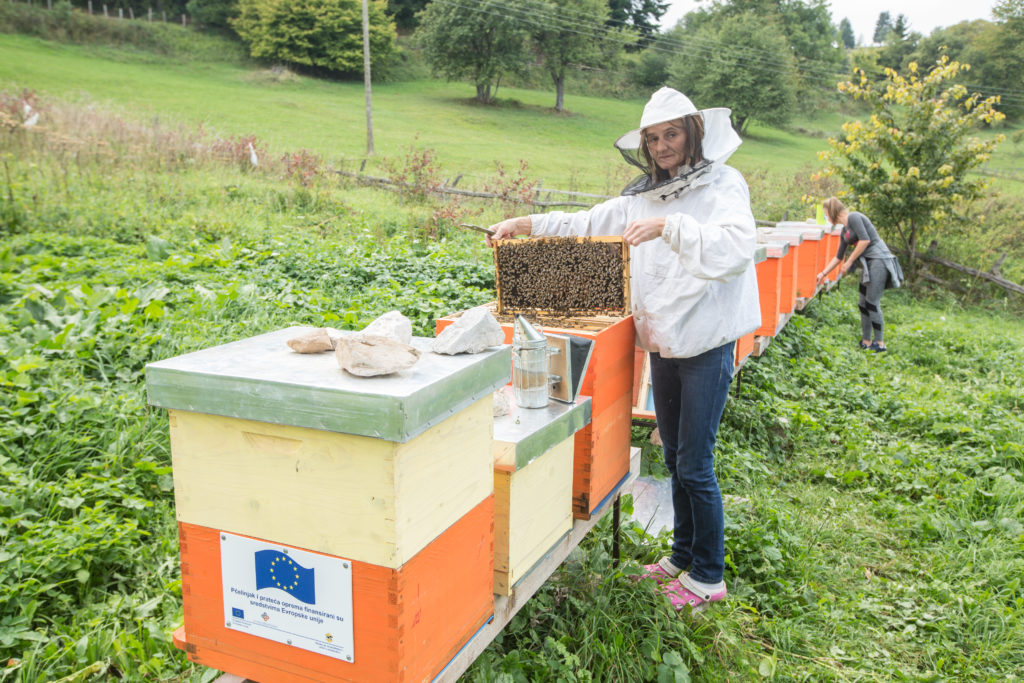
In their daily work, they had the help of Milenko Vujinović, the project’s coordinator from NGO Sunce. He explains that the project involved 20 unemployed men and women who wished to permanently solve the issue of their employment.
“With this project, they have been given an opportunity to get a job that could earn them a good income. In the first year in Bosnia and Herzegovina, the producers supported by the project made 250 kg of honey, which is an extremely good result and an indication of the quality of training and seriousness of the project,“ says Milenko.
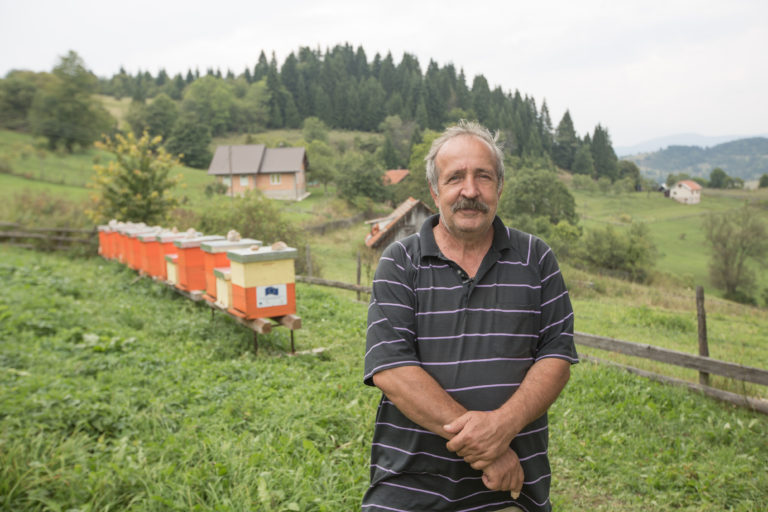
In the first year in Bosnia and Herzegovina, the producers supported by the project made 250 kg of honey, which is an extremely good result and an indication of the quality of training and seriousness of the project.
In order to ensure the placement the beneficiaries’ products, a honey packaging facility was also built as part of the project. In line with the goal of the project, persons with disabilities have been employed in the facility.
The €245,388 worth project “Persons with disabilities – leaders in beekeeping” was 85% funded by the European Union as part of the cross-border cooperation programme between Bosnia and Herzegovina and Montenegro, while 15% of funding came from partner organisations. The project was implemented in 2018 and 2019 by Our Initiative – An Association of Parents of Children and Young People with Developmental Disabilities from Podgorica together with partner organisations from Bosnia and Herzegovina and Montenegro: Sunce – An Association for Assisting Children and Young People with Special Needs from Pale, Uljanik Association of Beekeepers from Berane and Pale Association of Beekeepers.
